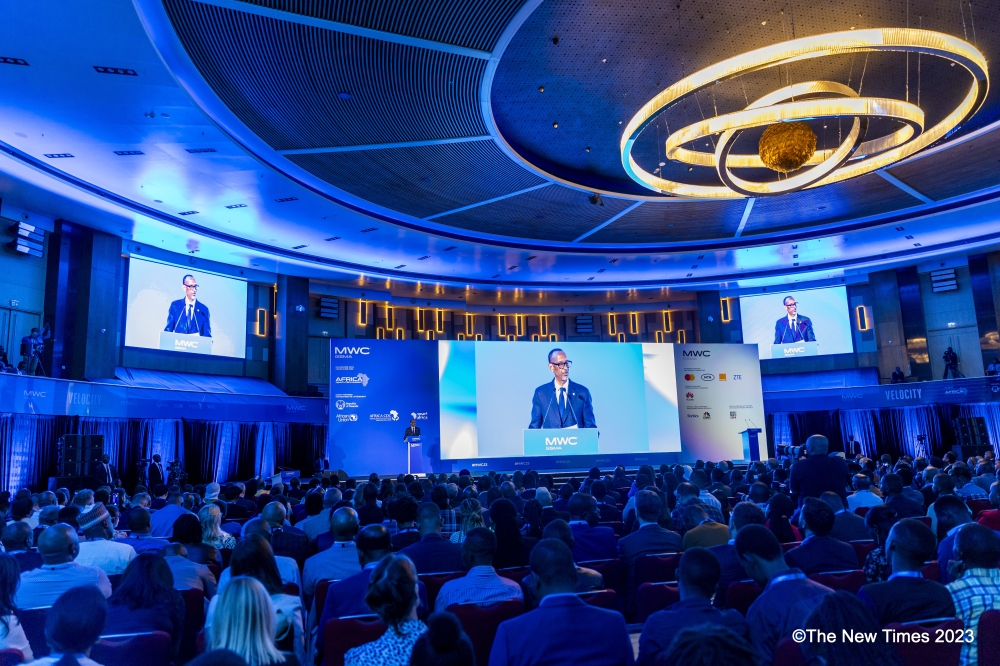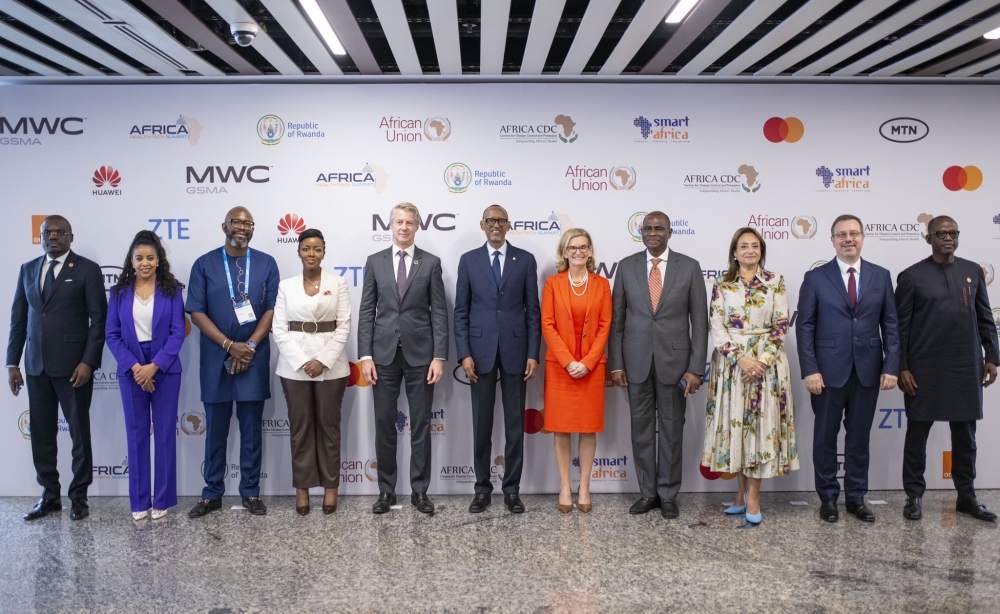President Paul Kagame has said there is a need to address the gaps in mobile access and connectivity urgently as a significant portion of Africans remains offline.
He was speaking at the opening ceremony of Mobile World Congress Kigali at Kigali Convention Centre on October 17.
The conference, which will conclude on October 19, is Africa’s most influential connectivity event. It brings together over 2500 participants, including industry leaders, policy leaders and innovators, from 75 countries.
Sub-Saharan Africa has made great strides in making mobile innovation an enabler of change. According to GSMA, today, 85 per cent of the region is covered by mobile networks, but the remaining 15 per cent, which accounts for about 200 million people, remains unconnected.
Kagame recognises that Africa has the fastest-growing mobile network with a growing penetration rate, but still has a long way to go.
“We already have the means to address the problems we are dealing with today,” he said.

“The regional integration, powered by faster and more reliable broadband, is a big part of that. The African Union and Smart Africa are our institutions leading this, and Africa enjoys strong support from all of us. We can get more results faster by working together.”
“The pandemic has added to accelerating the transition to a new era of the technology-led development. Our young and talented entrepreneurs are driving this change, and we continue to support them.
That means we have to address the gaps in access and connectivity, with a sense… pic.twitter.com/VhyQWzvBDV
— Presidency | Rwanda (@UrugwiroVillage) October 17, 2023
The Head of State highlighted that the pandemic has hastened the shift toward a new era of technology-driven development, adding that young and talented entrepreneurs are at the forefront of the transformation as they receive continued support from the government.
“Financial technology is starting to make a big difference in everyday lives of our citizens. The potential of digital health technology to transform our health systems is also very clear,” he explained.
Kagame further commended Airtel Rwanda for bringing the post-4G data within reach of nearly every Rwanda with the new initiative announced Monday.
He commended support from Reed Hastings, the co-founder and executive chairman of Netflix, given that Rwandans will be able to acquire a new smartphone for under USD 20 in order to take advantage of the offer.
“MTN Rwanda has already offered a new competitive pricing to its customers as well. This is also very good news,” the President added.
The government’s role was to maintain an enabling environment and a level playing field.
This shows the power of collaboration among the private sector, government, and strategic partners,” he said.
At the same time, Kagame said there is a need to continue to prioritise digital skills.
He commended the International Telecommunication Union (ITU) and partners for a digital coalition launched in 2022, highlighting that so far, over USD 92 billion in revenues have been mobilised and will mostly benefit the hard-to-reach communities.
Mats Granryd, the Director General of GSMA, the lead organiser of MWC Kigali, lauded Rwanda’s ‘remarkable’ progress in the realm of technology and digital transformation, acknowledging the country as a leading innovator on the African continent.
He highlighted Rwanda’s significant strides in the digital landscape, citing a World Economic Forum ranking that places the country at number four in Africa, with the potential to ascend to the top position.
Granryd emphasized that mobile connectivity now blankets nearly 99 per cent of Rwanda, with over 11 million connections, with over 85 percent of these now based on mobile broadband technologies.
“The number keeps growing. There is still much work to be done in Rwanda and across the continent to make sure that everyone everywhere has access to mobile internet and the transformational benefits of mobile internet,” he said.
Granryd acknowledged the government’s ongoing work and commitment to bridging the mobile usage gap by making smartphones more affordable, stating tax exemptions and partnerships as key drivers in the direction.


